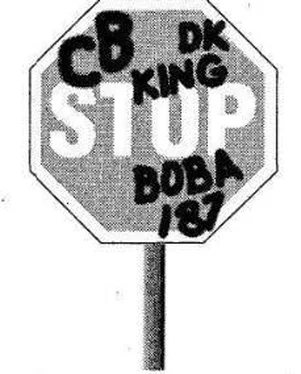Leeman made no response. He shoved his hands into his pockets, a particularly difficult task because his corduroy pants (in August?) were small and ill-fitting. The front of his untucked shirt showed the spillage of many meals past.
The truth struck Ben like a baseball bat to the head. When Leeman’s first trial was canceled, and he was committed to his first institution, some poor liberal soul probably thought it was the humane thing to do.
That person had been horribly wrong. Instead of giving Leeman a fair trial, they gave him a life sentence.
“Do you have any objection to my becoming your attorney?” Ben had no inkling how much, if any, of what he had said to Leeman was understood.
Leeman twisted his head one way, then the other. “Papa?”
“Your father wants me here. As I said, it was his idea.”
“Okay.” Leeman flashed a quick smile, then turned back to his model.
“That’s a great car you’re making,” Ben said. He had to remind himself not to talk baby talk. This was a mentally retarded adult, not his nephew. “Did you make all these?”
Leeman’s eyes brightened. “All.”
“I tried to make a model once, when I was a kid. An Aurora model of Superman crashing through a brick wall. I totally screwed it up. Came out looking like the Bride of Frankenstein.”
Leeman hunkered down on the carpet and picked up a saucer-shaped piece. A hubcap or something.
“I read that you like music, Leeman. Is that right?”
Leeman’s head tilted on the word music. Without comment, he walked to a cabinet against the wall and opened it.
Inside, Ben saw a stereo system—receiver, turntable, and two speakers. Not the best system in the world, but not garbage, either. And beneath the stereo were two shelves filled with albums. Hundreds of them. Most of them in covers well-worn and tattered.
Ben scanned the titles. “Are all these albums yours?”
Leeman nodded his head enthusiastically. “You?”
Ben nodded. “Yeah, I like music. I majored in music. I still play the piano, when there’s time.” Ben pulled out a blue album cover. “I have this one. Leonard Bernstein conducts Beethoven’s Fifth with the New York Philharmonic. What do you think of it?”
Leeman waggled his shoulders in an indifferent manner.
“Yeah, same here. Great musician, but not his best recording. I think he was trying too hard to be innovative.”
Leeman pointed to a group of albums on the same shelf.
Ben scanned the spines. “Wow. Are all of these recordings of Beethoven’s Fifth? You’ve got good taste, Leeman.”
Leeman moved in closer and pulled out one of the albums.
Ben read the label. “Roger Norrington. Yeah, I’ve got that one, too. Darn good recording. All period instruments. Fascinating interpretation. Is it your favorite?”
Leeman shook his head and placed his finger on another album.
Ben drew in his breath. “Hans Schmidt-Isserstedt. Vienna Philharmonic, 1966. A first-pressing analog recording.” He pulled out the album and clutched it to his chest. “I’ve been looking for this album all my life. The experts say it’s the greatest, most authentic recording of the Fifth ever made, but it’s been out of print for years. I’ve haunted every used record store in Tulsa, but I’ve never found it. Where did you get it?”
“Papa,” he replied simply.
Somehow, Ben wasn’t surprised. “Leeman, you’re a lucky man. I’d give almost anything for this record.” He glanced at his watch. Enough pleasantries. Time to get to work. “Leeman. I’d like to ask you a few questions. Do you understand the charges that have been brought against you?”
Leeman’s expression changed almost immediately—from one of utter tranquillity to one of haunted despair.
“Leeman, a doctor has said that you’re capable of assisting in your own defense. Let’s prove him right, okay? Help me out here.”
Leeman looked back at Ben, his eyes wide and helpless. One of two possibilities was true. Leeman didn’t want to help—he didn’t even want to talk about it. Or, the doctor in Ponca City was out of his mind and Leeman was not capable of assisting in his own defense.
“Leeman, did you know the woman who was killed?”
Leeman turned away from the stereo and closed the cabinet.
“Did you see anything at the country club that night?”
Still no answer. Leeman was acting as he had when Ben first came in—as if he wasn’t there.
“Leeman, you’re going to have to tell me what you know about the murder.”
“Hon … da,” Leeman said abruptly.
“Honda?”
“Honda.” Leeman held up his hands as if steering a car. “Honda.”
“Oh—right. I drive a Honda. An eighty-two Honda Accord. How did you know?”
Leeman twisted around and faced the window. He held his right hand over his eyes, as if to block out the nonexistent sun. “See?”
Ben did see. Leeman’s window overlooked the front parking lot. Leeman must’ve seen Ben park.
“You know your cars, don’t you?” Ben refused to be so easily distracted. “But getting back to the murder. Can you tell me what happened?”
Leeman turned away.
“Or what you saw? Whatever you know. Anything could help.”
Leeman did not respond, did not turn around.
Ben grabbed Leeman by the shoulders and whirled him around. To his astonishment, he found that Leeman was crying.
Tears spilled out of his eyes and streamed down his bloated cheeks, dripping off his chin and onto his stained shirt. His lips trembled; the tears continued to flow.
Ben took a step back. “I’m sorry, Leeman. I didn’t mean to—I didn’t think.”
He decided against any further questions. It was pointless. All the doctors in the Southwest couldn’t convince Ben that Leeman was capable of assisting in his defense. Leeman might have some limited capacity for understanding, but he couldn’t communicate. Whatever information he possessed in his head was locked up tight.
“I’m going to go now, Leeman.”
“Honda?”
“Right. I’m going to drive away in my Honda. But I’ll be back. Whether I take your case or not.”
Leeman looked at him pensively.
“And next time I’ll ask you to play me that Isserstedt recording. No excuses.”
Leeman grinned. “ ’Scuses,” he echoed. He began humming the intro to the second movement of the Fifth while he carefully glued a left rear hubcap into place.
9
BEN WALKED BRISKLY THROUGH the downtown office of the Tulsa Police Department Central Division and turned the corner around the gray office partition bearing the nameplate of LT. M. MORELLI, HOMICIDE. He was pleased to find the detective was in.
“How goes it, shamus?”
Mike looked up from his desk. A toothpick was cocked in the side of his mouth. “Surviving. Yourself?”
“I had a morning like you wouldn’t—” Ben stopped short. “Wait a minute. Something’s different.”
“I beg your pardon?”
“Something’s not right.” Ben snapped his fingers. “Your pipe! Where is it?”
Mike shifted the toothpick to the other side of his mouth. “In my safe. Locked.”
“And you’re sucking on a sliver of wood?” The light dawned in Ben’s eyes. “You’re trying to quit.”
“Yeah, well, all my friends were doing it.”
“Is it hard? I always assumed that tobacco inhalation was just part of your macho two-fisted facade.”
“That, plus a major nicotine addiction.”
“So you’re having trouble quitting?”
Mike grunted. “Gained ten pounds last week. That’s when I switched to toothpicks.”
“Well, I’m proud of you, pal.” He laughed. “One of the boys at the desk told me you were kind of grumpy today. This explains why.”
Читать дальше







